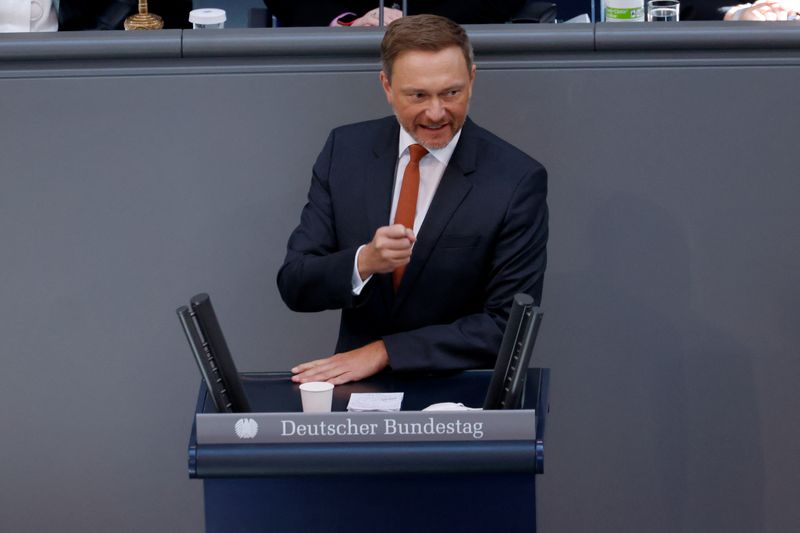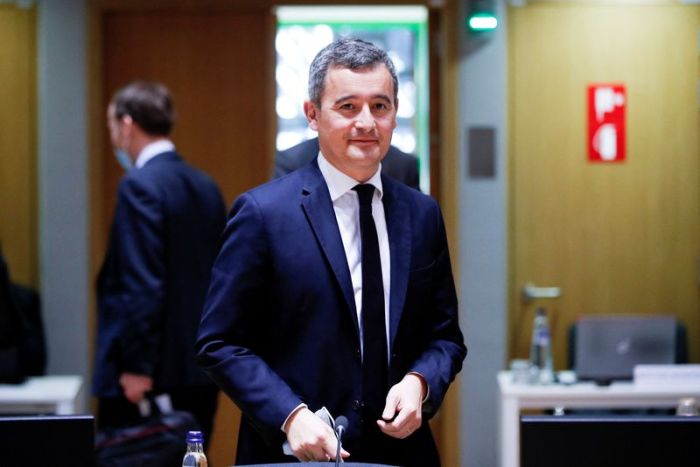BERLIN (Reuters) -Germany’s finance minister said on Monday the cabinet would approve a draft 2022 budget on Wednesday but that he would submit supplementary fiscal plans to parliament in the coming weeks to reflect the economic impact of the war in Ukraine.
Christian Lindner’s draft budget envisages net new debt of 99.7 billion euros ($109.4 billion) in the core budget, plus additional credit authorisations for a planned special fund for the military.
However, this budget would only be valid for the time being and supplementary measures would follow to address the effect of the Ukraine crisis, which it said was too early to ascertain now.
“We will also submit a supplementary budget to the Bundestag in the next few weeks,” Lindner said.
“The state must not leave citizens and the economy alone to face higher prices,” he told reporters in Berlin, adding that he wanted to introduce a fuel rebate for car drivers to help cushion the impact of higher energy prices.
Florian Toncar, parliamentary state secretary in the Finance Ministry, told Bild Live separately that a rebate for heating costs for a three-month period was also under consideration. The ministry expected it to cost 1.5 billion euros a month, he said.
Lindner has signalled potential support for companies that are in danger of collapse owing to sanctions imposed on Russia over its invasion of Ukraine.
The sanctions also have negative consequences for Germany, he said, adding: “That is a price we are ready to bear.”
“The pressure on (Russian President) Vladimir Putin must be increased to the maximum in order to end this war as quickly as possible. We therefore welcome the continued work on sanctions,” Lindner added.
The budget plan he will present on Wednesday sees net new debt falling to 7.5 billion in 2023, before rising to 13.7 billion in 2026, finance ministry sources said.
($1 = 0.9116 euros)
(Reporting by Holger Hansen and Paul CarrelEditing by Miranda Murray and Mark Heinrich)



















